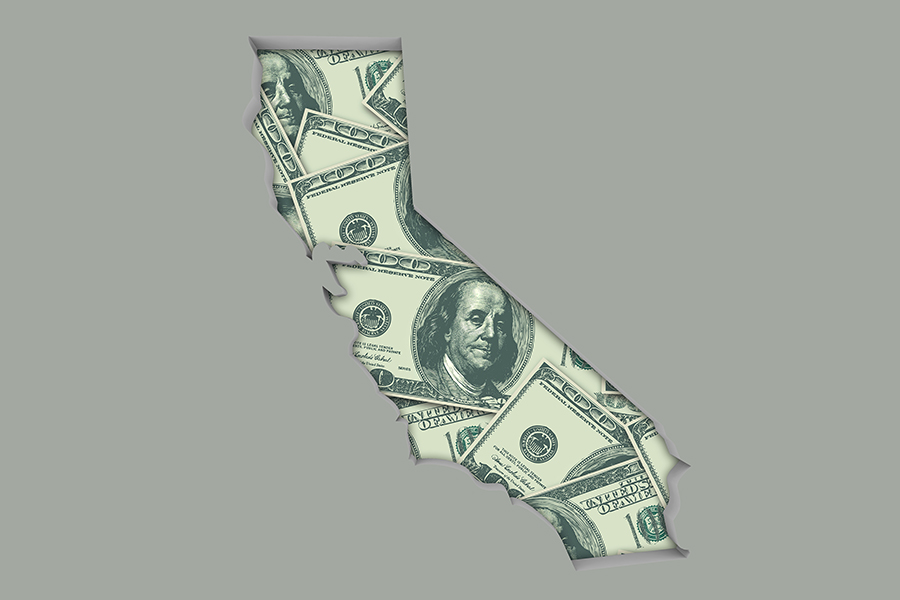Although democratic socialism is a fringe position at one extreme of the political spectrum, voters in the country’s two largest cities have been open to electing its proponents. Zohran Mamdani won the Democratic primary for mayor of New York City in July and Los Angeles has four democratic socialists on the City Council (out of 15). Council members Hugo Soto-Martinez, Nithya Raman, Eunisses Hernandez and Ysabel Jurado are all members of the Democratic Socialists of America organization.
Democratic socialists run on promises of providing “free” things or reduced costs through direct government services, market interventions or expansions of the social-safety net. This has certainly been the case with Mamdani’s campaign. He is running on eliminating bus fares, free childcare, rent control and government-owned grocery stores. He’s proposed a 2% additional income tax on those earning more than $1 million. He’s also focused on international issues, such as denying tax exemptions for groups supporting Israeli settlements.
There is something peculiar about democratic socialists (as opposed to members of the two major parties) that makes them particularly ill-suited for leading our cities. The most effective city governments focus on the nuts-and-bolts of municipal services, but democratic socialists are ideologues—they focus on implementing policies that are radical departures from the norm without thinking too deeply about the ill results of them. As an example, Los Angeles tried free bus fares during COVID-19—and as a result buses were turned into roving homeless shelters.
Democratic socialists would greatly expand bureaucracy and increase spending even as unresponsive bureaucracies and high tax rates drive up costs and encourage residents to move elsewhere. Republicans and more traditional Democrats often propose misguided policy, but democratic socialists take matters to a much more radical level.
They consistently advocate for policies like rent control despite it being essentially settled (among economics on the right and the left) that rent control, on balance, does more harm than good. Rent control discourages property owners from renting out their properties. It constricts supply and increases prices (and decreases property maintenance) over the long haul. For instance, one study found that San Francisco’s rent controls reduced supply by 15% and increased rents by 5%.
Many traditional Democrats also support rent control. But there’s much disagreement among Democrats on the issue, with many prominent Democrats having opposed a failed statewide initiative that would have given cities more power to impose these rent caps. On the other hand, democratic socialists almost certainly back rent control by the very nature of their underlying ideology. Market intervention is a core feature of the socialist vision, after all.
The liberalism of the Democratic Party is compatible with respecting the free market while democratic socialism is by definition an opponent to the free market. When city voters elect socialists, they’re electing people who will certainly try to undermine markets. With its four socialists leading the charge, Los Angeles City Council voted this year to increase the minimum wage for hotel and airport workers to $30 by 2028, and are advocating for imposing rent caps in the city as low as 3%.
When cities elect democratic socialists, jobs are lost, businesses close and government waste increases. California’s 2023 minimum wage increase for fast-food workers is estimated to have caused a loss of between 9,600 to 19,300 jobs in that sector. In effect, socialist policies cause the greatest harm to those they are meant to help.
In New York City, Mamdani’s promise to build a series of government-owned grocery stores has drawn much scrutiny but interestingly, the public is largely in favor. A poll earlier this year by the Climate and Community Institute found that, “Two-thirds of New Yorkers polled (66%) support the creation of municipal grocery stores in New York City, including a strong majority of Democrats (72%), as well as a majority of Independents (64%) and Republicans (54%).”
This demonstrates that voters often are highly susceptible to campaigns that promise the world even when the economic reality undermines those promises. When democratic socialists like Mamdani claim that these municipal grocery stores will be able to offer lower prices by removing the profit motive, it sounds plausible at first.
But then economic and political reality suggests that governments struggle with running operations efficiently enough for them to be self-sustaining even without a profit motive. Such stores have been tried across the country with most closing after consistently operating at a loss and often charging higher prices than privately-owned competitors.
“Despite almost $18 million of dollars in taxpayer investment over the past 10 years, the Sun Fresh grocery store in the [Kansas City] closed its doors” earlier this month, per a report from an NPR affiliate. Pennsylvania has had state-run liquor stores since Prohibition—and the results are higher prices and fewer choices. Mamdani’s stores will either close or the city’s taxpayers will absorb their losses. A better and cheaper idea would be to allow retailers like Walmart into New York City and protect them and other grocers from shoplifters.
We should lament the gradual rise of democratic socialist politicians in our cities. The problems that our cities face require nuance and practical, real-world solutions rather than far-left nostrums.
Rafael Perez is a columnist for the Southern California News Group. He is a doctoral candidate in philosophy at the University of Rochester.


